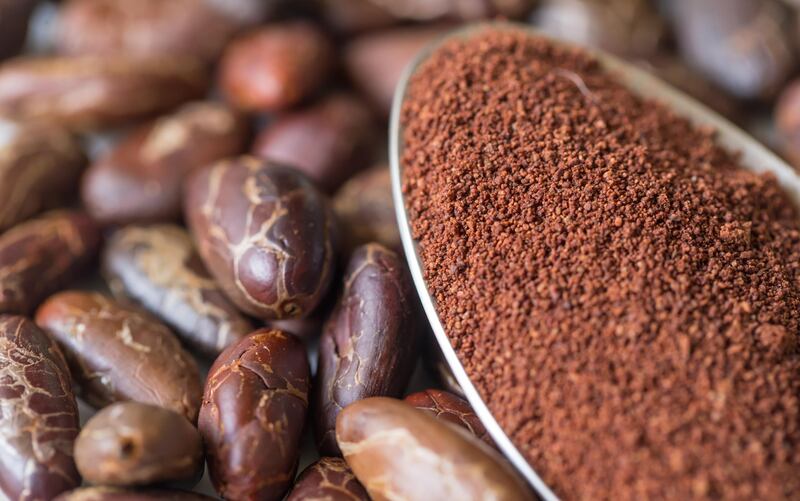- The flavanols in cocoa can reportedly help your skin to fight the harmful effects of the sun's UV-rays. This may explain the increased use of cocoa butter in many body lotions of late. A study in the Journal of Nutrition argues that women who consumed high flavanol cocoa powder were better protected from the sun's rays, and that they displayed increased skin density and better hydration levels.
- Theobromine, the active ingredient of cocoa, is similar to caffeine but much less addictive and does not impinge on the nervous system. In fact, eating chocolate causes your brain to release feel-good neurotransmitters such as endorphin and dopamine, which explains why chocolate can be such a mood enhancer. The flavanols in chocolate also help calm the brain in stressful situations.
- A 2011 study conducted for online journal Nutrition & Diabetes showed that participants who ate dark chocolate before a big meal consumed fewer calories than those who ate milk chocolate. According to neuroscientist Will Clower, melting a small square of dark chocolate on your tongue 20 minutes before a meal triggers the hormones in the brain that signal satiation. This cuts the amount of food you consume.
- Your brain also benefits from the flavanols in chocolate. A study published in the journal Appetite found that chocolate consumption was associated with improved cognitive performance, irrespective of other dietary habits. The researchers said that regular chocolate intake could help "protect against normal age-related cognitive decline".
__________________________________
Focus on choclate
- The recipe for Ruya Dubai's famed dark chocolate kibbeh
- Snack away. Chocolate is officially good for your heart
__________________________________










